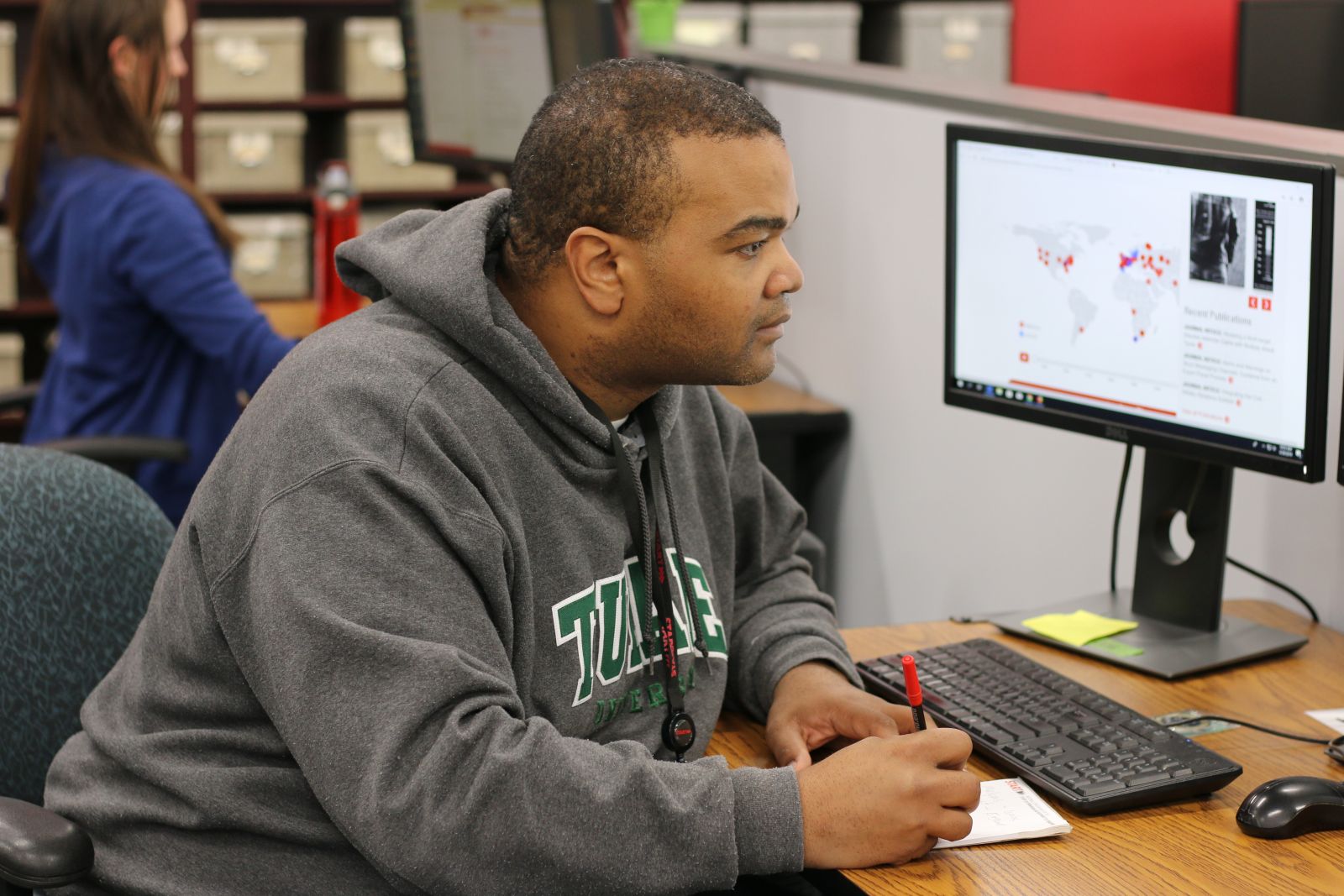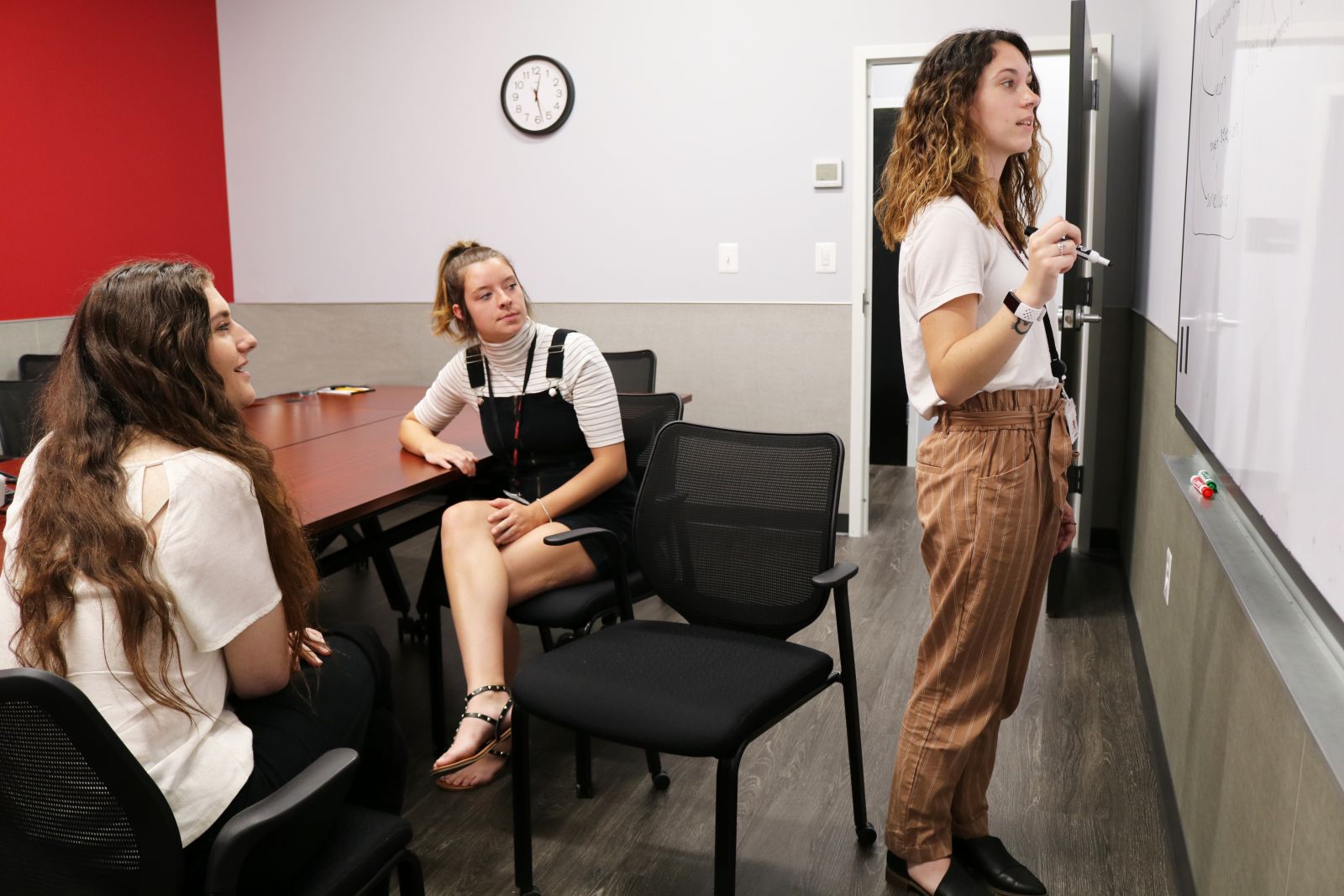START’s DARPA-SIGMA+ interns love the work they do on their project, so much so that their only complaint has been that they want to do more.

“We have different schedules, so we’re not always a full team. I feel like we could get even more done if we had the full team all the time,” intern Vegas Curry said, to the agreement of his cohort.
The team of four interns came to START to work on the DARPA-SIGMA+ project, a Department of Defense-funded initiative to further efforts in creating new tools that proactively detect and identify plots involving chemical, biological, radiological, nuclear and explosive (CBRNe) weapons.
Curry, who joined the U.S. Navy after 9/11, got his first master’s degree in Homeland Security Studies at Tulane University. He is now working on a second master’s degree in Liberal Arts, with a focus on public policy and international affairs.
Fellow intern Anderson Wagner is a Criminology major and freshman at the University of Maryland. Samantha Hargis, also a freshman at the University of Maryland, is a double major in History and Communications with a prelaw track, and Molly Ahearn, a sophomore at the University of Maryland, is a Government and Politics major with a concentration in International Relations and minors in global terrorism and global poverty.
During the internship, the interns conducted a literature review of CBRNe adversary behavior and learned how to synthesize sources for research reports. In addition, interns developed their own weapon selection models using a generalized framework of an adversary attack cycle. They also engaged in red teaming, wherein interns had to simulate the behavior of a CBRNe terrorist group to better understand the decision-making process of an adversary.
The red-teaming scenarios involved the interns pretending to be members of violent organizations, such as the real-world anti-abortion extremist organization Army of God, and a hypothetical organization obsessed with bringing about a nuclear apocalypse. Using open source information, the interns explored how such groups could acquire weapons and plan attacks.
“We used the adversary attack cycle to create different scenarios using different weapons to demonstrate how terrorist actors may acquire and utilize CBRNe weapons in attacks,” Hargis said.
Wagner further explained the process.
“We basically built a story—like a very detailed story board, including all the communications between members,” she said.
While the team mentions the exercise as one of the most rewarding experiences of the internship, it wasn’t originally in the plans, according to their supervisor.

“I wasn’t planning on having them conduct red teaming for nuclear terrorism, because that’s the most challenging type of scenario,” project supervisor Thomas Guarrieri said. “But they did so well with developing an explosives scenario that I wanted to see how they would do with the most challenging one. I had my colleagues James Halverson and Dan Smith look at it, and we all agreed that this cohort did well mirroring how nuclear security experts would approach this exercise.”
On the best part of the internship, Curry said, “I think it’s the opportunity to have a group of really smart people working on one task, one idea.”
The interns also engaged in professional skill-building activities like having mock interviews with START staff, résumé and cover letter workshops, and learning how to build professional online profiles. Additionally, they had their professional photos taken in the START studio.
“I feel like a lot of people, when I told them I got an internship, they thought I would just be making paper copies and bringing people coffee. But we’re doing research, and red teaming,” Ahearn said. “It’s nice because at START, what you do actually goes somewhere, and matters.”
The interns noted that many START staff members contributed to the quality of their internship experience.
“I like how everyone is so helpful,” Hargis said. “I feel like everyone here wants you to succeed. Even if they may not particularly know you, they’ll get to know you and try to help with whatever they can. And I really like that.”
Their supervisor had nothing but praise for this group of interns.
“I think this particular cohort has been uniquely enthusiastic about the work, and very driven to accomplish challenging tasks,” Guarrieri said.
